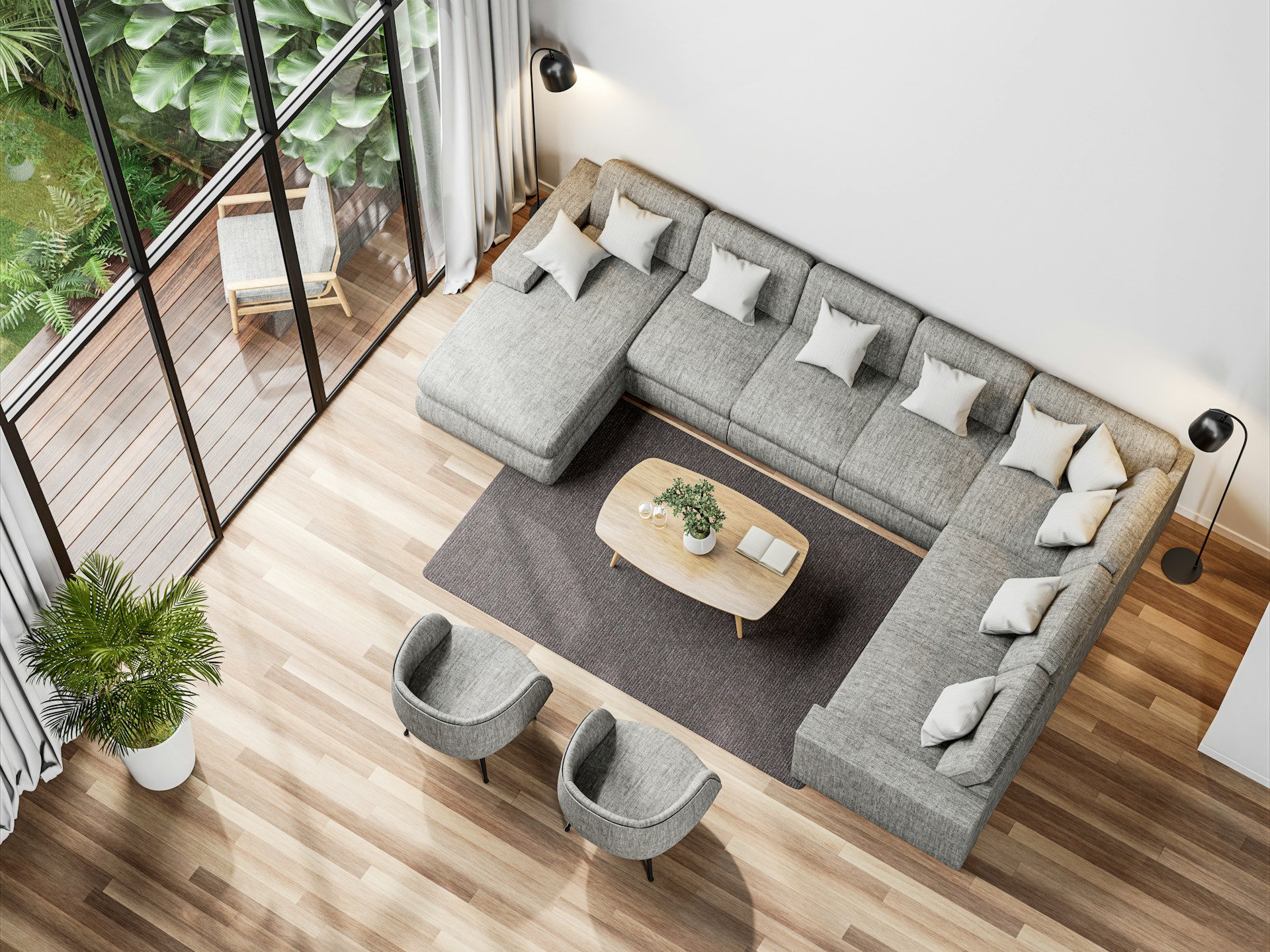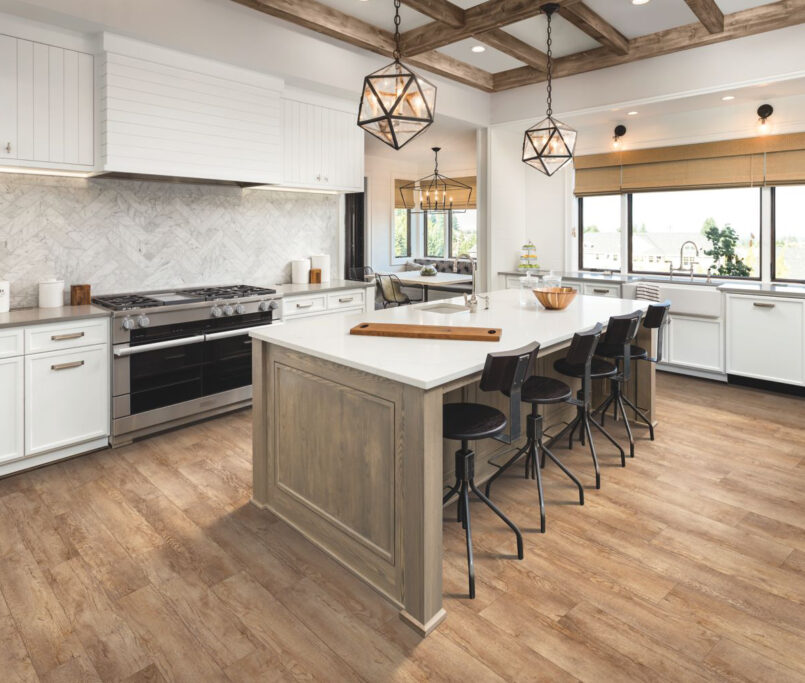When considering hardwood flooring for your home, understanding the associated costs is essential for effective budgeting. As a reputable hardwood flooring store in Loveland, OH, we at 50 Grit Flooring aim to provide you with a comprehensive guide on hardwood installation costs, ensuring you are well-informed before making your investment.
Factors Affecting Hardwood Installation Costs
The cost of installing hardwood floors can vary significantly based on several factors. Here are the main considerations that will influence your overall budget:
- Type of Hardwood Flooring: The type of wood you choose plays a significant role in determining the cost. Traditional solid hardwood flooring tends to be more expensive than engineered hardwood, which is often more affordable and offers better stability in varying humidity levels. Depending on the type of wood, you might expect to pay anywhere from $12 per square foot for basic red oak to considerably more for exotic woods like teak or mahogany.
- Wood Species: Different wood species come with varying price points. For example, red oak is one of the most common and affordable options, while species like walnut or cherry can cost significantly more. When deciding on your wood flooring, it’s essential to consider both the aesthetic appeal and the budget implications of your chosen wood species.
- Square Footage: The size of the area you wish to cover will have a direct impact on the total cost. The total cost of your hardwood installation will be calculated based on the square footage of the room(s) being fitted with new flooring. For instance, if you have a 300-square-foot living room and opt for flooring costing $12 per square foot, the flooring material alone will amount to $3,600.
- Cost of Installing Hardwood Floors: In addition to the price of the wood itself, you must factor in the cost of labor for hardwood installation. Labor costs can vary based on your location and the complexity of the installation. Typically, you can expect to pay around $3 to $6 per square foot for labor, depending on the intricacies of the job.
Additional Costs to Consider
When budgeting for your hardwood flooring project, there are several additional costs you should keep in mind:
- Subfloor Preparation: If your existing subfloor is in poor condition, you may need to invest in repairs or replacement, which can increase your overall costs. Proper subfloor preparation is crucial for ensuring a long-lasting installation, so don’t overlook this aspect.
- Removal of Existing Flooring: If you’re replacing old flooring, you’ll need to account for the cost of removing it. Depending on the type of existing flooring and the labor involved, this can add to your total expenses.
- Finishing and Treatments: After installation, you might want to finish or treat your new hardwood floors. Whether you choose to stain, seal, or apply a protective coating, these additional treatments will also contribute to the overall cost.
Tips to Save Money on Hardwood Installation
While the initial investment in hardwood flooring can be significant, there are ways to save money in the long run. Here are some tips to help you manage costs effectively:
- Choose Engineered Hardwood: If you’re looking for a more budget-friendly option, consider engineered hardwood. This type of flooring typically costs less than solid hardwood and offers increased durability against water damage and humidity fluctuations.
- Plan for Installation Timing: Timing can impact costs. If you can plan your installation during off-peak seasons, you may find better rates on labor. Contractors may offer discounts during slower months to keep their teams busy.
- Buy from a Local Hardwood Flooring Store: Purchasing your materials from a local hardwood flooring store like 50 Grit Flooring can often save you money on shipping and handling fees associated with larger retailers. Additionally, local stores may have ongoing promotions or clearance sales on certain wood species.
- DIY Preparation: If you’re comfortable with home improvement tasks, you might consider handling some preparatory work yourself, such as removing old flooring or prepping the subfloor. This can help save on labor costs, making the total cost of your hardwood installation more manageable.
- Get Multiple Quotes: Before settling on a contractor, compare quotes from several professionals. This will give you a clearer understanding of the average cost in your area and may help you find more competitive pricing for both labor and materials.
Understanding Your Total Cost
To effectively budget for your hardwood flooring project, create a detailed outline of all expected expenses. Start by calculating:
- The cost of the flooring material based on your chosen wood species and the square footage of your home.
- Labor costs, factoring in the square foot for labor based on quotes you’ve received.
- Any additional expenses, such as subfloor preparation, removal of existing flooring, and finishing treatments.
By clearly outlining these costs, you’ll have a comprehensive view of what to expect when installing new flooring in your home.
Protecting Your Investment
Hardwood flooring is a significant investment, so it’s essential to take steps to protect it. Proper maintenance can help extend the life of your floors and keep them looking beautiful for years to come. Consider the following tips for maintaining your hardwood flooring:
- Regular Cleaning: Sweep or vacuum regularly to remove dirt and debris that can scratch the surface. Use a damp mop with a cleaner specifically designed for hardwood flooring.
- Humidity Control: Keep humidity levels in check to prevent warping or cracking. Investing in a humidifier during dry seasons can help maintain optimal moisture levels.
- Avoid Water Damage: Be cautious with spills and moisture, as water damage can severely affect the integrity of your hardwood floors. Wipe up any spills immediately and avoid excessive moisture during cleaning.
With careful planning and a clear understanding of the costs involved, you can make informed decisions about your hardwood flooring project. Whether you choose solid hardwood or engineered options, investing in quality flooring will enhance the beauty and value of your home for years to come. Let 50 Grit Flooring assist you in navigating your hardwood installation journey, providing expert advice and quality materials tailored to your needs.






